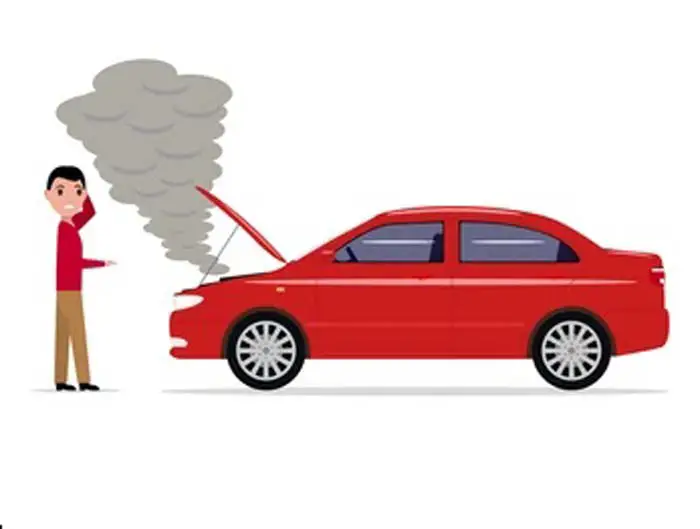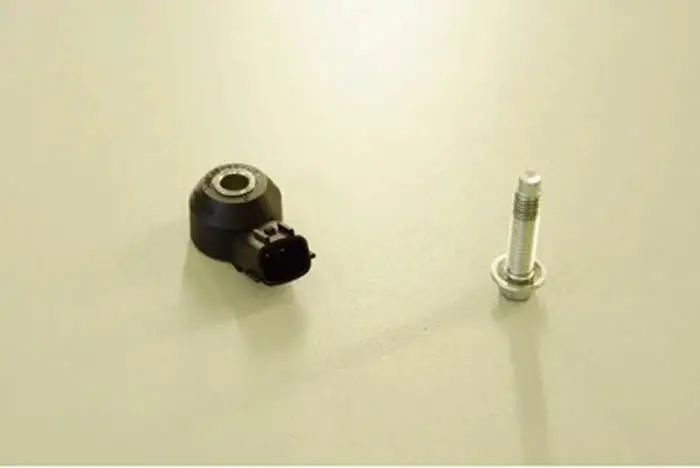
The modern car is packed with sensors that constantly read its functionality and health. These sensors can tell the car what gear it’s in, how fast it’s going, and whether or not it needs to brake. Cars also use these sensors to keep track of the driver’s location, speed, and other conditions.
The knock sensor is one of the many sensors that constantly read the car’s functionality and health. A knock sensor is used to determine when a knock has been detected, which can indicate that there might be something wrong with the car.
Here, in this article, we are going to discuss what a knock sensor is in a car, what it does, why it occurs and many more things explained in easy-to-understand language.
Related Post: Top 5 Symptoms Of A Bad Knock Sensor: Don’t Ignore These!
What Is Knock Sensor In A Car
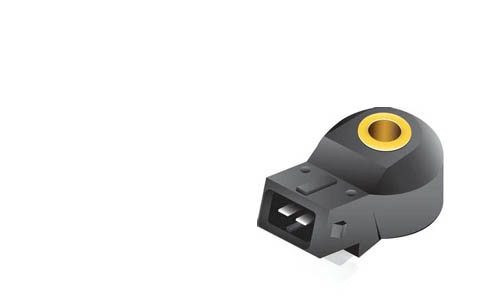
The knock sensor is an important part of a car’s engine control system. It’s designed to recognize when the engine is knocking, or making a noise, and then activate the proper parts of the control system to prevent damage. Knock sensors are found in many different types of cars, from luxury models to economy cars, and they’re usually a standard feature.
An engine knock is a sound that occurs when there is a second unexpected ignition or explosion within the body of an engine cylinder.
The knock sensor monitors the combustion process in the engine. It is an electrical “listening” device used in cars to detect detonation, knocking, or irregular vibration of the engine, which is potentially damaging forms of abnormal combustion.
The knock sensor transmits a signal to the ECU when it detects rapid engine vibrations characteristic of knocking.
Engine knocking is usually caused by the air/fuel mixture detonating prematurely in the engine. When this happens, it can cause damage to the engine. One way to reduce knock is to use a high octane number of fuel. A higher octane number fuel will resist knocking more than a lower octane number fuel.
The faulty knock sensor is not at fault for the knocking. The knock sensor’s sole job is to prevent damaging the internal parts of an unhealthy engine by knocking them, which helps the engine function without incident. It protects the engine from destroying itself but is not the cause nor the solution for the knocking.
It is located on the engine block, or intake or exhaust manifold.
What Does A Knock Sensor Do In A Car
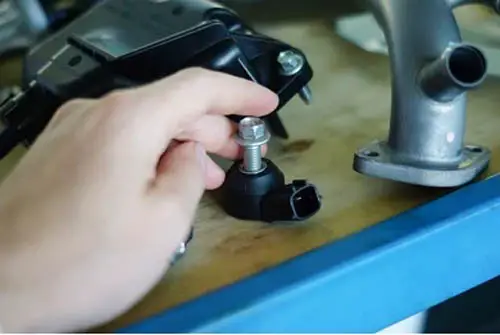
The knock sensor detects mechanical vibration and sound emitted from the engine block and converts it into an electronic signal that is sent to the engine control unit (ECU). The car’s computer process the signals then interprets the signal and determines if any ignition timing changes are necessary.
The sensor monitors the irregular vibrations in the engine and can identify when knocking is occurring. This allows the engine management system to adjust the timing and fuel mixture to help reduce or eliminate knocking.
When the knocking is detected by the computer, the engine computer can delay the timing setting of the spark plug to get rid of the knocking vibration, which contributes to improved engine performance and fuel economy.
The knocking noise coming from the engine usually sounds like thumping. The sound will become more prominent as you accelerate or increase the throttle.
You may have seen that certain engine sounds occur when your car is revved up a lot – you might hear a rattle or tapping sound, reminiscent of a ball bearing inside a spray paint can, and these terms describe it: pinging, pinking, detonation, or spark knock. This occurs when the fuel and air mixture pockets inside an engine reach a self-ignition temperature and get ignited apart from the regular ignition inside the cylinder around the same time.
How Does A Knock Sensor Work
The knock sensor operates on the principle of piezoelectric ceramics that generates a voltage when it vibrates. Piezoelectric ceramic is a material that converts a mechanical effect (such as pressure, movement, or vibration) into an electrical voltage.
When the voltage is detected by the ECU, it knows the engine is experiencing detonation then the ECU evaluates the car’s engine and adjusts its timing appropriately, usually reducing the timing till the knock sensor stops vibrating. This cycle occurs hundreds of times a second as the ECU constantly monitors and adjusts the timing.
Related Post: 1, 2, & 3 Wire Knock Sensor Wiring Diagram (With Picture)
Why Does Knocking Occur In An engine
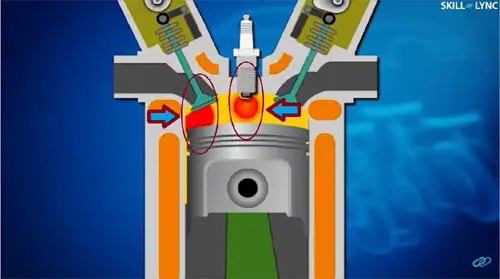
The spark plug ignition creates a flame front that travels inside the remainder of the cylinder space. That flame front produces pressure and increases the temperature of the fuel in the subsequent cylinder.
As the temperature increases, the combustion reactions of the fuel and air combine to create a second ignition (explosion) inside the combustion chamber apart from the regularly controlled ignition caused by the spark plug. The two unique and separate ignitions when get join inside the combustion chamber and a knock is heard.
In the above picture, you can see that the two flames (circled in the above image) occur at the same time at different points inside the combustion chamber, which generates shocking waves resulting in a knocking sound.
Related Post: Knock Sensor Problems – Could Your Car Be At Risk?
Another Name For Knock Sensor
A knock sensor is also known as an engine ping or detonation sensor. It is used to detect knocking or pinging noises in the engine. The knock sensor sends a signal to the engine’s computer that tells it how severe the knocking is. This helps the computer to adjust the engine timing so that the knocking stopped.
FAQs
Technically yes, you can drive with a bad knock sensor. As the knock sensor is an important part of the engine management system, it is not advisable to drive with a bad knock sensor. The knock sensor is used to detect knocking or pinging sounds in the engine, which could indicate engine damage. If the knock sensor is not functioning properly, the engine may not be able to adjust itself accordingly and could sustain damage as a result.
The short answer is yes, but there are some potential consequences. Without a knock sensor, your car’s engine will not be able to adjust the air/fuel mixture as efficiently, which could lead to increased fuel consumption and emissions. In some cases, running your car without a knock sensor can damage your engine. Therefore, it is generally advisable to keep your car’s knock sensor functioning properly.
When a knock sensor is unplugged, the engine computer can no longer detect knocking and adjust the ignition timing accordingly. This can lead to increased engine noise and reduced performance. In some cases, it may also cause engine damage. Additionally, if the knock sensor is not functioning properly, you will get a trouble code of P0325. This code indicates that there is an issue with the knock sensor itself.
Related Post: How Long Can I Drive With A Bad Knock Sensor?
Sign Up



